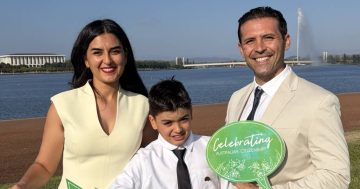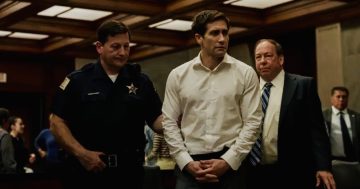Reviewed by Robert Goodman.
By Steve Toltz, Penguin, $32.99.
 The Afterlife and the Beforelife (?) as concepts in fiction have never really gone away from the Bible through Dante’s Inferno and beyond. But in these uncertain and pandemic-riddled times there seems to be have been a bit of a renaissance in the depiction of these ideas. Movies like Soul and Nine Days and TV shows like The Good Place have dealt with that part of humans that either exists before or survives death. Australian author Steve Toltz, best known for his Booker shortlisted debut A Fraction of the Whole, takes on life, the afterlife, organised religion, the pandemic and a range of current issues in his latest book Here Goes Nothing.
The Afterlife and the Beforelife (?) as concepts in fiction have never really gone away from the Bible through Dante’s Inferno and beyond. But in these uncertain and pandemic-riddled times there seems to be have been a bit of a renaissance in the depiction of these ideas. Movies like Soul and Nine Days and TV shows like The Good Place have dealt with that part of humans that either exists before or survives death. Australian author Steve Toltz, best known for his Booker shortlisted debut A Fraction of the Whole, takes on life, the afterlife, organised religion, the pandemic and a range of current issues in his latest book Here Goes Nothing.
It is no spoiler to reveal that the narrator of Here Goes Nothing, Angus Mooney, is dead. He reveals as much in the opening lines of the book. Before we get to how he died, and while Mooney gets used to his new situation, we start the strange story of how his wife invited a dying stranger into their home and how the cash strapped pair make a deal with him that enables him to stay. Before long Mooney is dead, finds himself in an unexpected afterlife, trying to work out what to do with his new life but also finding an unhealthy way to keep track of his wife and the lodger who is sliding into his place.
It has to be said that Toltz’s afterlife is idiosyncratic but uninspiring. It is essentially, our world but grimier. People have had all of their Earthly maladies cured but they still eat and drink and work and fight and procreate and can still die (and still no one knows where they go next). There are religions, refugee camps, housing shortages, border skirmishes and, of course, a bureaucracy that essentially runs the place (an interesting commonality with all of the works previously mentioned).
Mooney is what can only be called a Toltzian character. Damaged, self-deprecating, needy, obsessive and self-destructive. While he is in some ways the perfect guide to what is a dispiriting and grey afterlife, he is also a hard character to spend a lot of time with. Meanwhile his nemesis, Owen Fogel, while more than a little sociopathic, is also suave and charismatic when he wants to be.
Because this novel was written post 2020 it has a pandemic thread – a new, deadly pandemic is sweeping the world spread by domesticated dogs. This allows Toltz to comment on the global response to Covid, and the Australian response in particular. It is also used as a plot device that puts pressure both on Angus’ pregnant wife Gracie and on the resources of the afterlife in which Mooney has found himself. In a clear allegory of various refugee crises around the world, those who run the afterlife have to find a pragmatic solution to the sudden influx of souls that they are unable to house.
Being about the afterlife, Toltz also has plenty to say about religion and its various institutions. The afterlife itself has its own forms of religion, because humans will be human. Back on Earth, Gracie is a marriage celebrant and later officiates at baby namings, and she tells things as she sees them, something that wins her plenty of work despite her unvarnished views.
Here Goes Nothing is a novel full of ideas but they are delivered in a fairly cynical, downbeat and fatalistic style. There is comedy here but it is intensely black and generally at the hapless Angus’ expense. And given what comes before it, it is unsurprising that the narrative builds to a particularly dark conclusion that may need to come with trigger warnings for some.
Over 750 more review can be found on Pile by the Bed.











